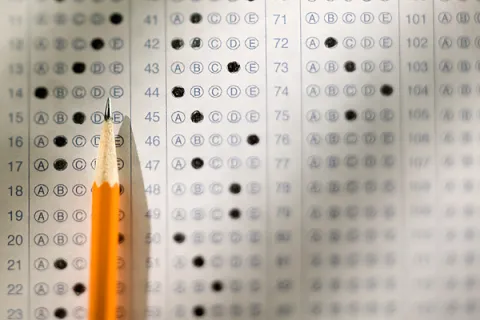In the past two months, two major schools have announced their decision to go back to mandatory testing starting for the college class of ’29 (graduating high school class of ’25). At the same time, other schools, including Pomona College, have announced their decision to go test-optional indefinitely. While the colleges that announced their decision to require testing have the same start date of implementation, their reasoning for the decision and the way they plan on implementing it are very different.
In regards to how standardized testing requirements will be implemented, Yale has decided to go “test flexible,” meaning students can fulfill the testing requirement in four ways compared to the standard two. In addition to the SAT and ACT, applicants can also submit AP or IB testing scores.
In comparison, Dartmouth has decided to simply return to requiring the SAT or ACT, meaning many juniors who planned on applying test optional may have to scramble to get sufficient test scores for their desired college.
What’s more interesting than how testing requirements will be implemented is the reasoning behind it. Dartmouth recently published a statement saying, “Standardized testing—when assessed using the local norms at a student’s high school—is a valuable element of Dartmouth’s undergraduate application.” They assert that SAT and ACT scores are more representative of first-year success at Dartmouth. Dartmouth also claims that submitting test scores increases the diversity of college classes.
While Dartmouth’s argument appeared confusing and contradictory in regards to their stance on affirmative action, Yale argued that test scores are reviewed by a real person under a holistic review of an application and that test scores are just one piece of the admissions process that predicts success at the university. The adjustment of also allowing AB and IB scores as part of the admissions process backs up their argument that they are looking at a more holistic approach.
Studies are being conducted at many prestigious universities, and yet, many of them seem to be getting different results that affect their admissions decisions. The goal of the testing requirements at Dartmouth is to increase diversity and at Yale, to have a successful freshman class. Brown announced that they too will be reinstating testing for the fall class of ’25, saying that, “The absence of test scores makes it more difficult to differentiate among the many applicants with strong high school records or to contextualize the performance of a student from a school that has sent relatively few students to Brown and with which the office of college admission is less acquainted.” College admissions, with the aftermath of the pandemic, the Supreme Court ruling on Affirmative Action, and the general competitiveness of applicants, are the most complex they have ever been. Colleges are beginning to accept over 80% of their class early decision to protect their yield. They are now going back to mandatory testing, announcing their decisions at the very last minute. All of this, while maybe being slightly beneficial to colleges, puts extreme stress on juniors across America. Over the following months and years, it will be important to keep an eye on whether or not other schools follow in the footsteps of Yale and Dartmouth or stay on the route that Pomona is taking.
This article also appears in our March 2024 print edition.














